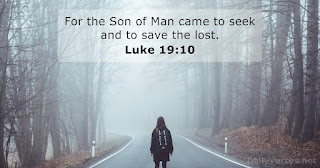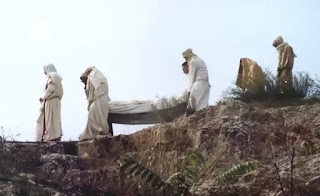We all know the story of Zacchaeus, short, rich and by his own admission a thief. Zacchaeus would have been unpopular and despised, but he wanted to see Jesus, not from a distance, not through a crowd but properly, even if it meant looking undignified by climbing up a tree and almost certainly joining the children and youth up there.
The more amazing thing is that Jesus wanted to meet Zacchaeus. Along came Jesus, surrounded by a throng, and stopped, looked up and called Zacchaeus by name and invited himself to dinner. Imagine the Queen walking the line when she suddenly picks you out by name, even though you’ve never met her, and invited herself to dinner. That’s the reality of what happened. Zacchaeus, the unpopular, despised tax collector was honoured in the sight of the crowd. And Zacchaeus immediately received Jesus and the encounter was transformational. In the sight and sound of everyone Zacchaeus promised extreme restitution, to pay back four times what he had stolen.
At this point the crowd lost the plot and grumbled about Jesus dining with a sinner. Jesus drew their attention to the fact that this was what he came to do, seek and save the lost but surely it didn’t mean people like Zacchaeus? It did. The Lord does not look at the things people look at. People look at the outward appearance, but the Lord looks at the heart 1 Samuel 16: 7b.
A similar thing happened at Gadarenes when Jesus delivered the demoniac from many demons so that he was free, clothed and in his right mind, surely a case of great rejoicing. Instead, the crowd were frightened and begged Jesus to leave. Admittedly their livelihood of a herd of pegs was now at the bottom of the lake, but didn’t they have any compassion for this poor man bound and out of his mind?
One encounter with Jesus transforms the life of any individual, no matter how wretched but our response is very telling. Are we full of self-righteous indignation (the elder brother syndrome) that Jesus could wish to not just associate with but transform an individual or are we fearful of the power of God to move in miracle-working power that will truly transform lives? I believe that wonderful verse in John 13: 35 By this everyone will know that you are my disciples, if you love one another, will become evident when we truly rejoice over one sinner saved and set free.
The Kingdom will certainly be evident amongst us when the Church has a different mindset from the world and celebrates when the broken, lost and rejected sinners are touched by an ever-loving God. The most powerful testimony of God’s transformational power is a life transformed and a Church eager to celebrate and testify to a sceptical world that God is real and here’s the evidence.














